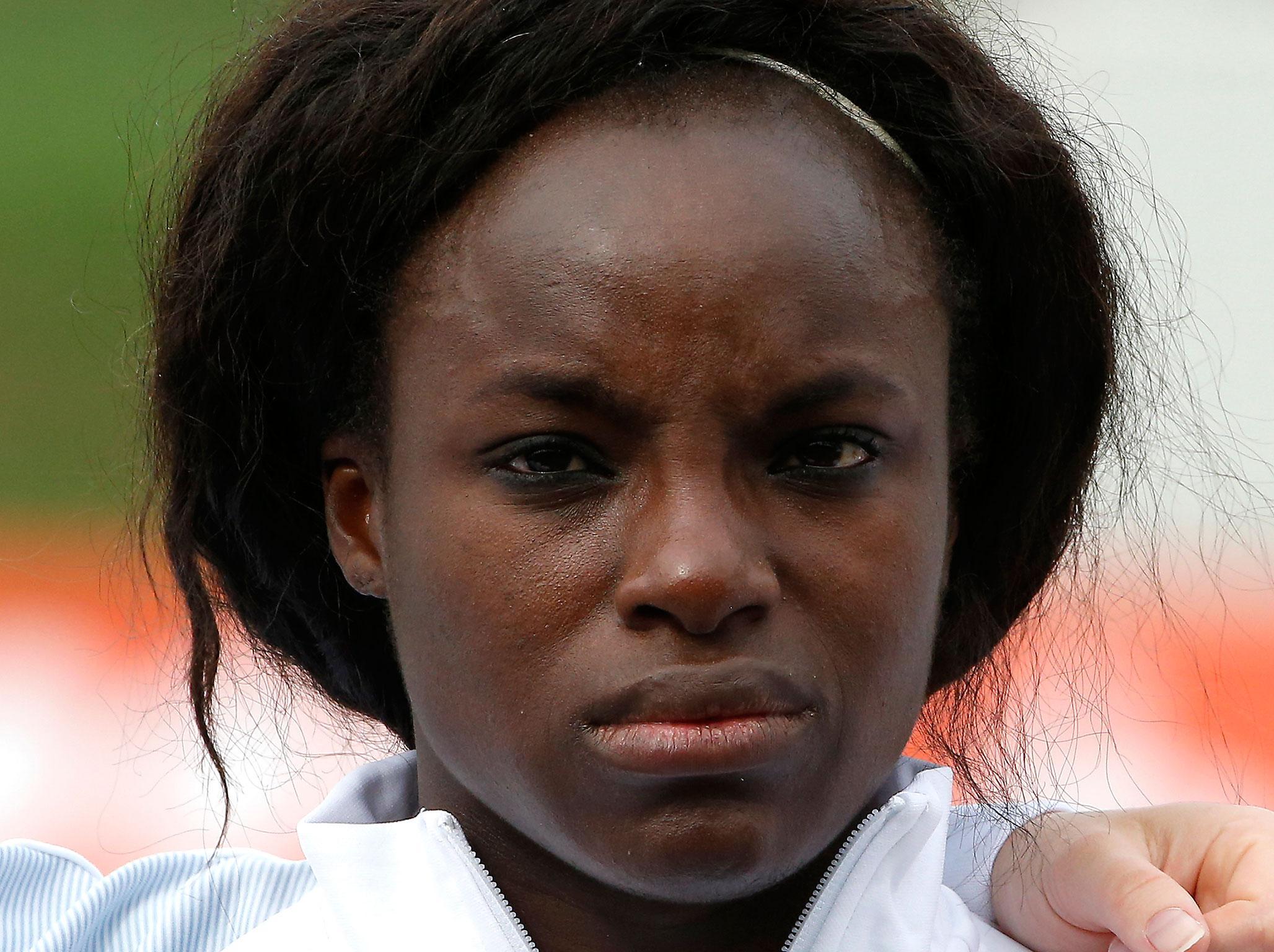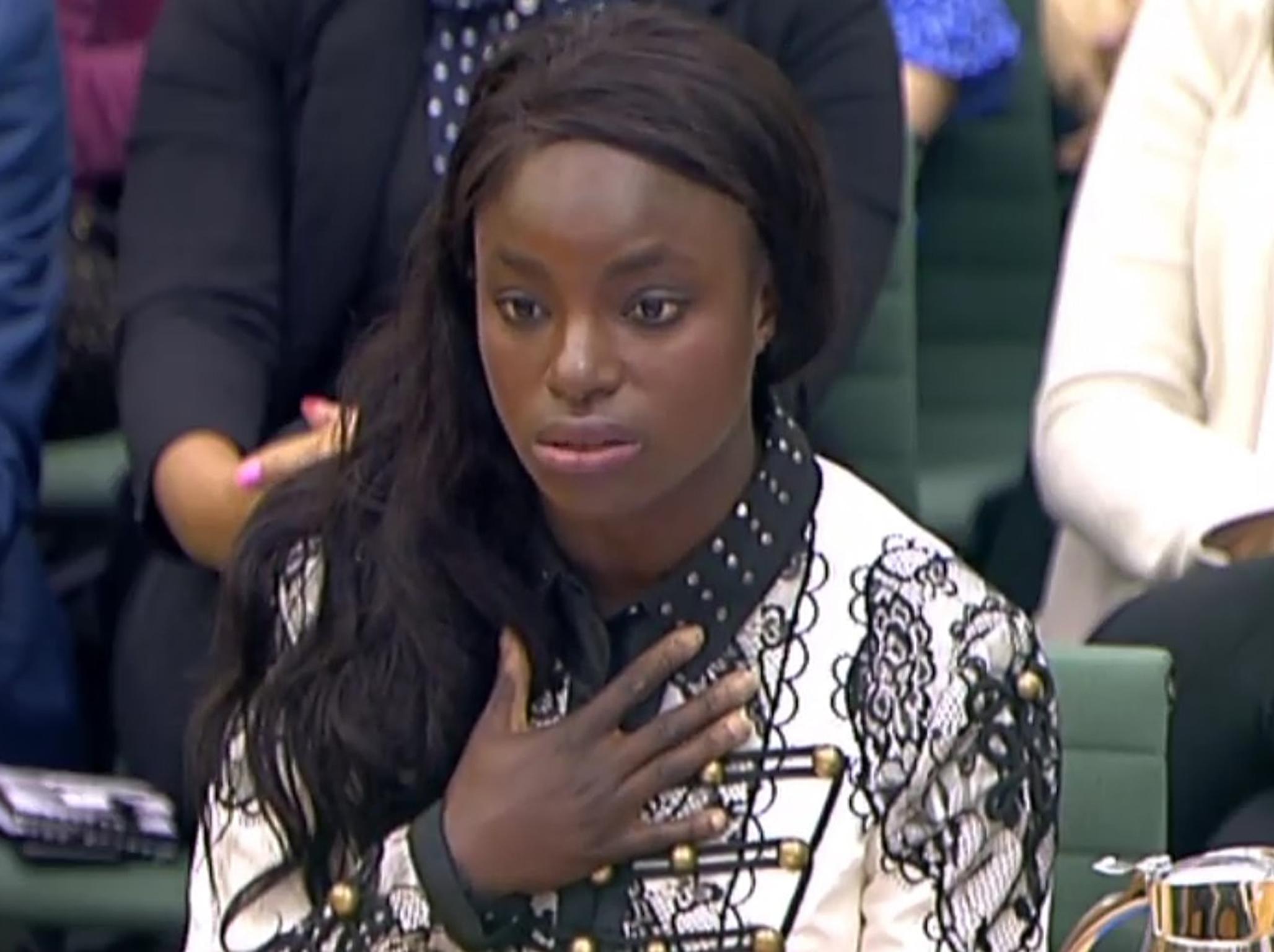Eni Aluko calls for stadium closures in the Premier League to combat racism
Aluko has challenged the sport’s authorities to ‘do way better’ in punishing racism

Your support helps us to tell the story
From reproductive rights to climate change to Big Tech, The Independent is on the ground when the story is developing. Whether it's investigating the financials of Elon Musk's pro-Trump PAC or producing our latest documentary, 'The A Word', which shines a light on the American women fighting for reproductive rights, we know how important it is to parse out the facts from the messaging.
At such a critical moment in US history, we need reporters on the ground. Your donation allows us to keep sending journalists to speak to both sides of the story.
The Independent is trusted by Americans across the entire political spectrum. And unlike many other quality news outlets, we choose not to lock Americans out of our reporting and analysis with paywalls. We believe quality journalism should be available to everyone, paid for by those who can afford it.
Your support makes all the difference.Eni Aluko has called for Premier League matches to be played behind closed doors as punishment for racist incidents.
Aluko's book 'They Don't Teach This' is published on Thursday, where the former England Women striker charts the racism storm that ultimately ended her international career.
The 32-year-old topped the scoring charts at Juventus last term en route to a league and cup double in her first season in Italy.
But on releasing a book designed as much to tell her story as inspire and inform the next generation of women in football, Aluko challenged the sport's authorities to "do way better" in combating racism.
"I firmly believe that stadium closures need to come in, in the Premier League," Aluko said. "You see that happen in eastern Europe. We're very good at pointing fingers when it happens somewhere else, but when it happens on our doorstep you don't really want the same punishment applying. So it just needs to be stepped up.
"And a behind-closed-doors Premier League match would really awaken people. It hasn't happened in the Premier League. There have been quite a few racist incidents in the Premier League, but there have been no stadium closures.
"When we get to the point where people realise 'OK, that can't happen again', that's when real change happens. Clubs are already banning fans, which is positive, but I think there's a group accountability that needs to come in."
The new league season has already been awash with top players suffering racist abuse on social media, leading twitter bosses to set up a meeting with Manchester United and Kick It Out.
Chelsea banned a fan for life for racially abusing Manchester City star Raheem Sterling, but - while welcoming that approach - Aluko insisted far more must be done to stem discrimination's rising tide.
Aluko has plenty of experience suffering through racism, with Mark Sampson eventually offering an unreserved apology for his treatment of the former Chelsea striker while he was the England Women coach.
Sampson was sacked in September 2017 over an unrelated issue, and his racist behaviour towards Aluko and Drew Spence was not fully admitted until January this year.
Aluko believes football already boasts enough power within the rules to combat racism, and has called on the game's bosses to start wielding it, and fast.

"There's a general fragility to the topic of racism that makes people very defensive and uncomfortable," said Aluko. "But we must be open about it, and we must all challenge ourselves against our prejudices. I think that's the starting point.
"But in the game of football, the authorities need to do way better, and stop pretending that they care about something when ultimately they don't.
"If somebody tweeted a terrorist threat, that person would be found immediately. That's a threat to society and public discord, so there's no issue around that, it's not acceptable.
"That person can be found, the tweets deleted, that person taken off Twitter, and possibly arrested. So why is it different for racism?
"If I walk down the street, or Paul Pogba walks down the street and someone is racist to them, that person can be arrested for hate speech.
"So we have to get to a point where it's no different if you're on Twitter or on the street. Some of the punishments around racism need to get better and be taken more seriously.
"I would really encourage it being seen in the same way as other types of hate speech."
Join our commenting forum
Join thought-provoking conversations, follow other Independent readers and see their replies
Comments